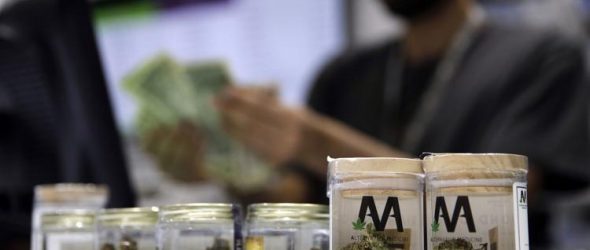 A portion of the tax revenue from legal cannabis sales in Illinois will soon be directed to communities hit hardest by the war on drugs.
A portion of the tax revenue from legal cannabis sales in Illinois will soon be directed to communities hit hardest by the war on drugs.
When lawmakers legalized recreational cannabis they included in the law measures to address the devastation that the war on drugs had on people who were imprisoned and the families and communities that suffered from their absence.
As part of the law, the state created the Restore, Reinvest and Renew (R3) program, aimed at helping these impacted communities to not only recover from the war on drugs, but to move forward. And it set aside 25 percent of state revenues from legal cannabis to pay for it.
On May 18, the Illinois Criminal Justice Information Authority (ICJIA) announced $31.5 million in grants to organizations that help the most severely impacted communities – according to the state’s R3 eligibility standards – recover and move forward.
Jennifer Volken-Katz, director of the John Howard Association, said that the comprehensive approach is needed.
“The goal of the R3 program is to holistically address systematic disenfranchisement and disinvestment,” she said. “It cannot be overstated how important it is to take a look at this issue and address it from every angle.”
Critical areas that could be funded include civil legal aid; economic development; re-entry from the criminal justice system; violence prevention; and youth development.
In announcing the grants, Acting ICJIA Director Jason Stamps said that the program will “start to close those gaps in areas most hard hit by gun violence, unemployment, and criminal justice system overuse.”
The team is looking for proposals that specifically address each communities’ needs and challenges, Stamps said.
Volken-Katz said that every aspect needs to be examined for real change.
“You have to look at the underlying issues and invest in communities that have historically been in this cycle that it’s very difficult to break out of creating opportunities for better education, for employment and opportunities to address ongoing issues of gun violence and substance abuse and things that led people into our prison system which then, of course, reduces the likelihood of opportunity for them upon release,” she said. “And until we’re willing to understand that all of these social determinants are related and impact people, we’re not going to be able to produce meaningful change.”
(Copyright WBGZ Radio / www.AltonDailyNews.com)


